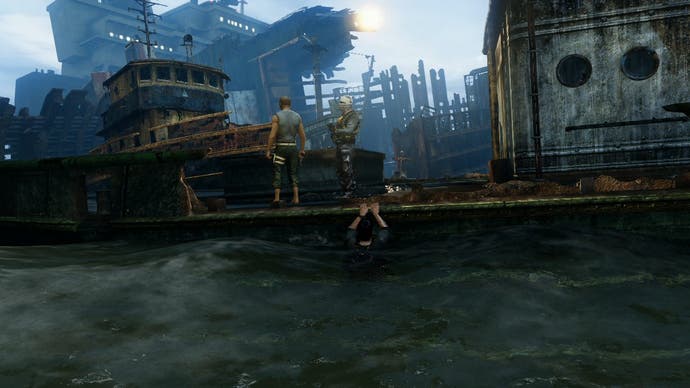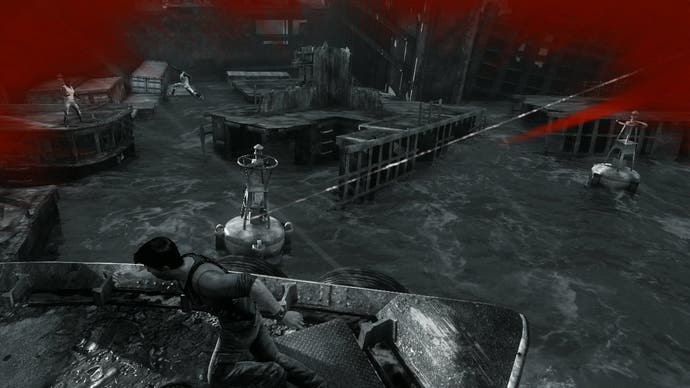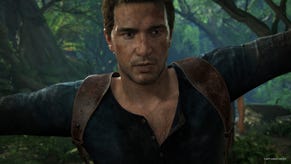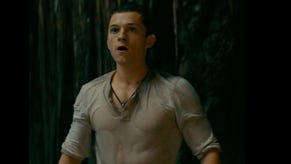Digital Foundry vs. Uncharted 3
"We're only limited by our imaginations."
The 3D Factor
Elsewhere, the developer has made some extensive changes to the core rendering with the introduction of split-screen and support for 3D. The former allows for two players to team up and play online with others, and is also useful for taking on the co-op levels without the need for an internet connection. The stereoscopic option is intriguing: the Uncharted engine - especially in its latest iteration - pushes PlayStation 3 hardware to the limit so the notion of that same technology producing two discrete views (one per eye) on the same platform sounds too good to be true. Amazingly, however, Naughty Dog has done it.
There are compromises - we're fairly sure that the 896x504 per eye resolution from the beta is retained, though pre-rendered movies for the single-player mode get a boost to 1024x576. Environmental detail is pared back in places, LODs are a touch more intrusive and heavy scenes can see a 4-5FPS drop in frame-rate. Aside from some extra input lag when the engine is being taxed, the overall experience in single-player is quite remarkable - and most of the issues we had with the 3D mode (most notably clipping) from the multiplayer beta appear to have been resolved. The 3D mode is by no means a "must", but we found it compelling enough to start a second playthrough of the single-player mode in 3D - for the lucky few, it adds to the replay factor.
Other interesting elements of Uncharted 3's technical make-up can be found by taking a look at the make-up of the disc itself. As Microsoft gears up in offering developers up to 7.9GB of space on its DVD format, Naughty Dog has taken full advantage of the Blu-ray delivery mechanism and utilises a colossal 46.3GB of space.
There are some "luxuries" in that allocation - 3.24GB of behind-the-scenes movies, 7GB of foreign language audio, and 10GB of 3D movies (pre-rendered cut-scenes are stored both in 2D and 3D versions) but by our reckoning there's at least 16GB of core game data being used in this game - and even then, Naughty Dog is employing compression on top of that, so the real size of these assets easily moves north of 20GB - not including pre-rendered movies. All of this is driven by executable code just 18MB in size.
The compression element is interesting. There is no mandatory install with Uncharted 3, everything is being streamed in and unpacked in the background, with an enviable level of efficiency - you can even skip cut-scene movies and the next level is always there waiting for you. Our feeling is that while Naughty Dog could have probably fit everything on the Blu-ray without compression, the system employed lightens the load on the drive. The developer did the same in the previous Uncharted titles, but it's clearly been taken to a whole new level for the third outing. Even bespoke animations are spooled in from disc.
"Just as a simple 'for instance' we have idle animations in Uncharted 3 that are over 12 minutes now," Naughty Dog's Lemarchand tells us.
"We can stream them, we don't need lots of memory, we just need the disc access time and there are lots of long, complex animations that we can stream in. We also just put in a lot of extra polish onto Drake and other characters. He'll reach out and touch walls as he passes them, which is something that we tried not to overdo but it does further the naturalistic look his animation has and sell him as a real human being as you steer him through the environments."
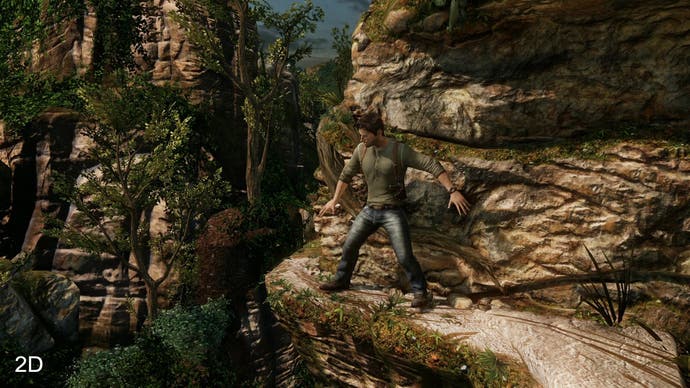
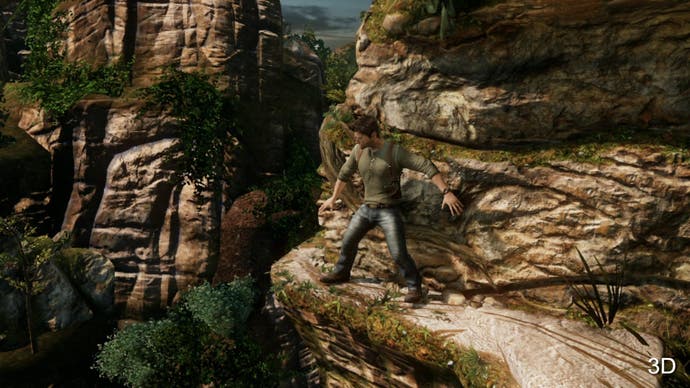
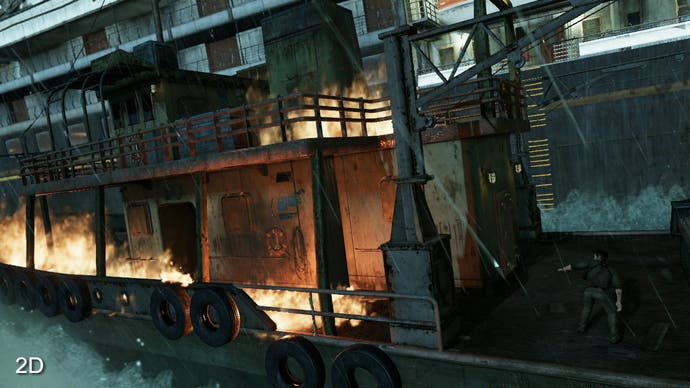
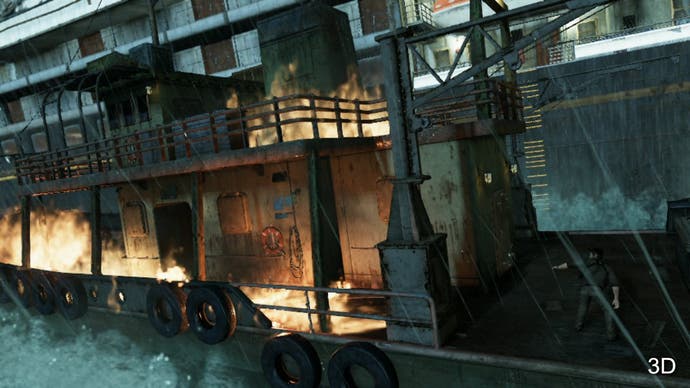
This is one of the more subtle enhancements we see in Uncharted 3 that sets it apart from other games. Animation is set in stone in most games and characters mostly move in exactly the same manner throughout, even when surrounding conditions change so much. Uncharted 3's animation is on a whole different level in this regard and result can be quite remarkable. A good example of this is the introduction of a young Nathan Drake, attending a Sir Francis Drake exhibit very early on in the game. The contextual animation here is a delight - the young explorer's gaze shifting from exhibit to exhibit as you navigate through the museum.
In this revealing 1UP article, Naughty Dog explains how its streaming tech is "abusing the PlayStation 3 like a bad child" and how three days from submission of the final game, the team discovered that older PS3s couldn't cope with the system: the constant decompression of assets was fragmenting the hard drive too much.
The system was fixed just in time (for the record, we played through completely on a launch-era debug PS3) but it does seem to suggest that the final push in Uncharted 3's development wasn't a particularly pleasant experience, and if we have one over-arching criticism of the game it's that elements of the single-player mode can feel rather unpolished.
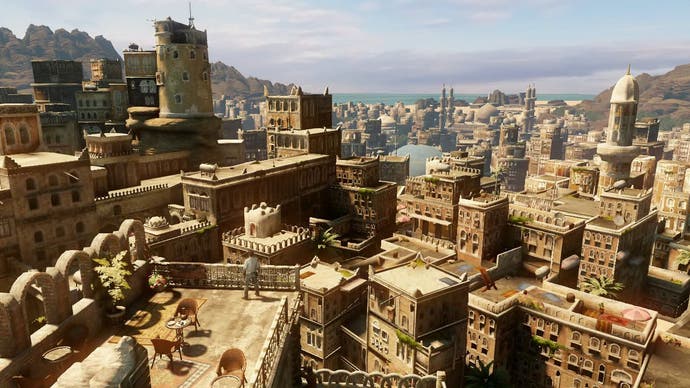
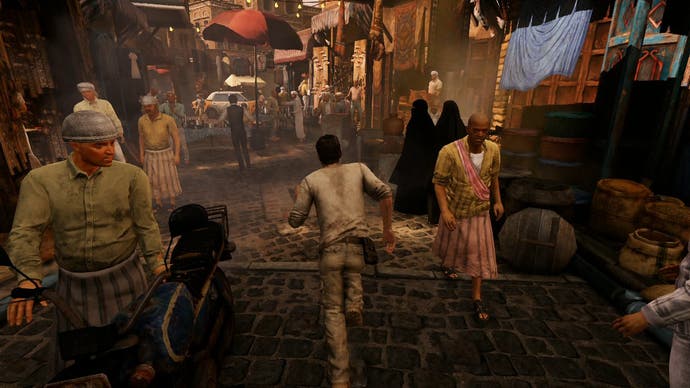
Uncharted 3: The Digital Foundry Verdict
Among Thieves possessed such a revelatory increase in quality over its predecessor - not to mention its competition - that it was always going to be tough for Naughty Dog's latest release to have the same kind of impact. It's fair to say that there are no new over-arching, groundbreaking technological ideas that enable amazing, never-seen-before gameplay opportunities in this sequel. Instead, the developers have iterated and improved on the systems they already have - an entirely valid approach and the results are often breathtaking, if not quite as fresh as they may have seemed in the last game.
What we do have is a game where state-of-the-art technology combined with a keen narrative sense gives us a story and an experience that is often light years beyond any other third-person action game we've seen since Uncharted 2. In a sense, Naughty Dog's greatest competition in the games industry is its own towering reputation, and the resultant expectation levels of the fanbase. This is a game that will come under scrutiny like no other, and in that harsh focus it's difficult to ignore that for all the sheer brilliance of the elements we've talked about in this article, it is not a perfect game.
